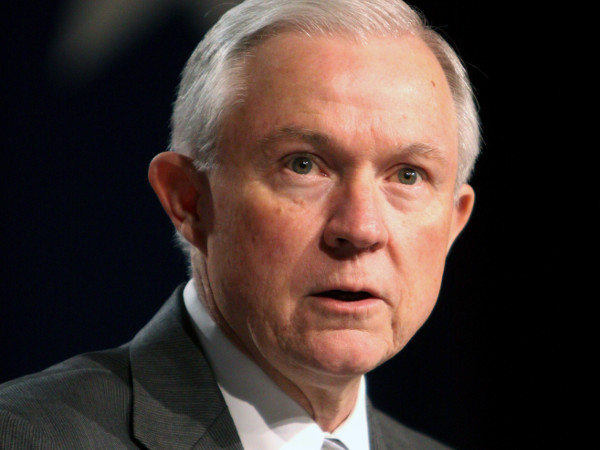Trump Nominates Sessions for Attorney General
 NEW YORK – President-elect Donald J. Trump on Friday nominated Sen. Jeff Sessions [R-Ala.] to serve as attorney general of the U.S., giving clues as to the direction the Department of Justice may take during the Trump administration. Sessions, who endorsed Trump’s candidacy early in the campaign, is considered a hard-line conservative.
NEW YORK – President-elect Donald J. Trump on Friday nominated Sen. Jeff Sessions [R-Ala.] to serve as attorney general of the U.S., giving clues as to the direction the Department of Justice may take during the Trump administration. Sessions, who endorsed Trump’s candidacy early in the campaign, is considered a hard-line conservative.
The Senate must confirm the nomination, and Washington insiders are saying the process could be messy. Although Republicans generally applauded Trump’s pick, Democrats and civil rights organizations voiced concern about Sessions’ lockstep march with Trump’s extreme position on Muslims and immigration reform. Last year, the Alabama senator supported Trump’s call for a ban on Muslim immigration.
Republicans hold only a two-seat majority in the Senate, so as few as two Republicans crossing the party line during the confirmation vote could end Sessions’ candidacy for the position.
In a statement released to the media on Friday, Trump praised Sessions’ “world-class legal mind.”
“Jeff is greatly admired by legal scholars and virtually everyone who knows him,” Trump said.
“Virtually everyone” does not include the adult entertainment industry, which primarily reacted with trepidation. First Amendment attorney Lawrence J. Walters called Sessions’ views “disturbing.”
Others were more forceful. Attorney Karen Tynan, for example, said she expects to see a return to a Reagan-esque furor over obscenity.
Sessions’ “appointment as AG is not good for adult entertainment,” said Tynan, one of the attorneys deeply enmeshed in the adult industry’s successful recent battle to defeat California’s anti-porn Proposition 60. “It’s likely a startling return to far-right obscenity prosecutions and criminalization of adult entertainment. He may try to push banks or financial institutions to tighten their rules for merchant accounts and banking.
“We need to see who his underlings will be and get ready for persecution and prosecution,” she added.
Industry trade association Free Speech Coalition already is girding its loins for battle.
“Sessions’ appointment is incredibly troubling for many reasons, including his hostility toward the adult industry,” said FSC Communications Director Mike Stabile. “I’ve heard from many in the industry who think that Trump is a secret social moderate who couldn’t care less about policing adult content. But with appointments like Sessions — and a transition team that includes noted anti-porn activists like Ed Meese, Rudy Giuliani and Ken Blackwell — that can only be described as wishful thinking.
“We’re likely to see free speech attacked vigorously over the next few years, and we’re going to need to band together to fight [the attack],” he added.
Concerns about Sessions using the AG’s office to further a moral crusade are not unfounded. A former U.S. Attorney and former Alabama Attorney General, Sessions was elected to the U.S. Senate in 1996. Ten years earlier, the Senate Judiciary Committee — on which he now sits — denied him a federal judgeship after former colleagues testified he was prone to racial bias. According to testimony, he was an outspoken critic of the federal Voting Rights Act, called civil rights organizations including the NAACP and the Southern Christian Leadership Conference “un-American” and “Communist-inspired,” and had no quarrel with the Ku Klux Klan until he learned some members smoked pot.
More recently, Sessions “blamed the military’s sexual assault problem on the availability of pornography on military bases,” said Free Speech Coalition Executive Director Eric Paul Leue. “While on the Senate Judiciary Committee, Sessions sponsored a resolution calling for the vigorous enforcement of federal obscenity laws, citing the Meese Commission as its basis. The resolution passed.”
One prominent adult industry attorney isn’t convinced Sessions would sound a death knell for the industry.
“Is Senator Sessions an enemy of the adult industry? There is some evidence of that, but not much, and generally distant in time,” J.D. Obenberger said, noting he believes Sessions sees societal mores as a bottom-up mandate from voters, not a top-down edict from elected representatives. “Will there be any obscenity prosecutions at all? Maybe. But if so, isolated and aimed at the very extreme, against content that is judged to be so deviant from the mainstream of American tastes that its suppression would not be noticeable to the vast majority.”













